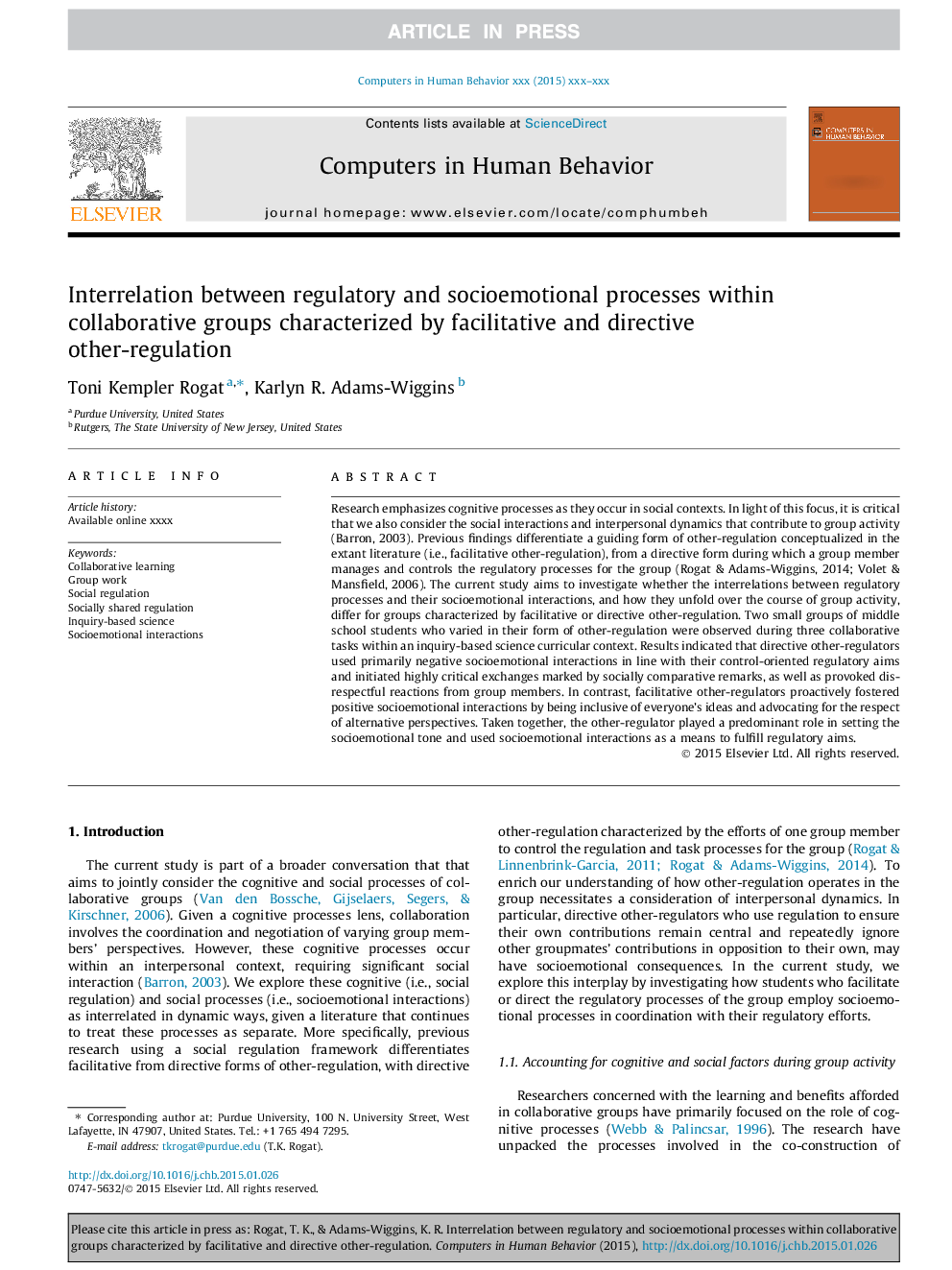| Article ID | Journal | Published Year | Pages | File Type |
|---|---|---|---|---|
| 6838087 | Computers in Human Behavior | 2015 | 12 Pages |
Abstract
Research emphasizes cognitive processes as they occur in social contexts. In light of this focus, it is critical that we also consider the social interactions and interpersonal dynamics that contribute to group activity (Barron, 2003). Previous findings differentiate a guiding form of other-regulation conceptualized in the extant literature (i.e., facilitative other-regulation), from a directive form during which a group member manages and controls the regulatory processes for the group (Rogat & Adams-Wiggins, 2014; Volet & Mansfield, 2006). The current study aims to investigate whether the interrelations between regulatory processes and their socioemotional interactions, and how they unfold over the course of group activity, differ for groups characterized by facilitative or directive other-regulation. Two small groups of middle school students who varied in their form of other-regulation were observed during three collaborative tasks within an inquiry-based science curricular context. Results indicated that directive other-regulators used primarily negative socioemotional interactions in line with their control-oriented regulatory aims and initiated highly critical exchanges marked by socially comparative remarks, as well as provoked disrespectful reactions from group members. In contrast, facilitative other-regulators proactively fostered positive socioemotional interactions by being inclusive of everyone's ideas and advocating for the respect of alternative perspectives. Taken together, the other-regulator played a predominant role in setting the socioemotional tone and used socioemotional interactions as a means to fulfill regulatory aims.
Related Topics
Physical Sciences and Engineering
Computer Science
Computer Science Applications
Authors
Toni Kempler Rogat, Karlyn R. Adams-Wiggins,
